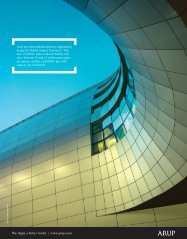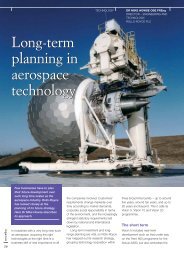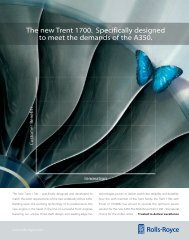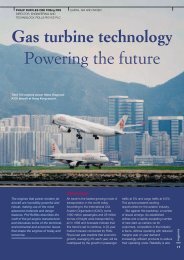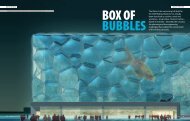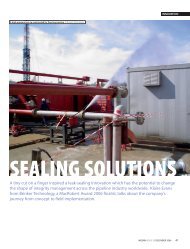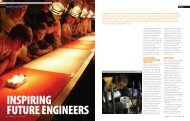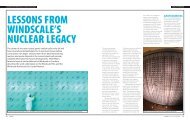Engineering ethics Engineering ethics - Ingenia
Engineering ethics Engineering ethics - Ingenia
Engineering ethics Engineering ethics - Ingenia
You also want an ePaper? Increase the reach of your titles
YUMPU automatically turns print PDFs into web optimized ePapers that Google loves.
PROFESSIONAL ISSUES<br />
concerns about the safety of the Rapid<br />
Transit System to the Board. Their<br />
concerns were dismissed, but not long<br />
afterwards, a BART train malfunctioned<br />
because of the problem pointed out by<br />
the engineers, and overran a station,<br />
injuring passengers. The engineers<br />
brought proceedings against their former<br />
employer in which the IEEE intervened.<br />
The petition to the Court stated that:<br />
‘California Courts recognise this<br />
principle and discretion should be<br />
liberally applied to favour Amicus<br />
Curiae intervention. The Court has<br />
broad discretion to permit the filing<br />
of an Amicus Curiae brief…because<br />
IEEE has a particular expertise with<br />
respect to engineers’ obligation to<br />
provide public safety’.<br />
The case settled and shortly afterwards<br />
the IEEE set up a formal amicus curiae<br />
review mechanism whereby engineers<br />
could request the IEEE to file an amicus<br />
brief in a particular case when an ethical<br />
question was raised. 20 This procedure is<br />
now provided for in the Institute’s Policy<br />
and Procedures Manual, which provides<br />
that the amicus statements submitted<br />
to the Court will be those judged ‘to be<br />
objective, verifiable and properly coming<br />
within the purview of the IEEE’. 21 After<br />
over twenty years in operation, twentythree<br />
amicus requests have been made<br />
to the IEEE under this mechanism, but<br />
for varying reasons (including<br />
settlement) none of these requests have<br />
led to the filing of amicus briefs in ethical<br />
support cases. Even so, there is much<br />
to learn from IEEE’s experience.<br />
After more than two decades<br />
following the BART case, experience in<br />
the USA has seen a blurring of the line<br />
between intervener and amicus,<br />
coupled with an exponential increase in<br />
the use of such briefs. This was the<br />
impetus behind several Federal and<br />
State Courts prescribing the manner in<br />
which such briefs were to be submitted.<br />
At the Federal level in the United States,<br />
the amicus practice is now regulated by<br />
procedural rules which require that<br />
private entities and individuals seeking<br />
to participate in a case as amicus curiae<br />
must either gain the consent of all<br />
parties or, if such consent is refused, file<br />
a request with the Court which<br />
describes the applicant’s interest in the<br />
case and whether any portion of the<br />
brief was authored or funded by a<br />
party. 22 This separation of the lobbyist<br />
brief from the true amicus brief is now<br />
essential when it is considered that<br />
amicus filings before the United States<br />
Supreme Court have increased eightfold<br />
in the last fifty years and that<br />
amicus briefs were filed in over 85% of<br />
all Supreme Court cases in the period<br />
1985 to 1996. 23<br />
There is, as yet, no similar<br />
development within the UK, which is<br />
still at an early stage in considering the<br />
usefulness of amicus briefs in aid of the<br />
maintenance of ethical standards. The<br />
experience from the USA indicates that<br />
caution will be required when seeking<br />
to establish appropriate procedures and<br />
that there will be a need to distance<br />
true ethical considerations from the<br />
interests of pressure groups.<br />
Conclusions<br />
This article has examined a limited<br />
number of current issues concerning the<br />
taking of direct action in response to<br />
perceived ethical duties in engineering. It<br />
is evident that engineering <strong>ethics</strong>, as<br />
currently developed in the United<br />
Kingdom, offers no complete solution<br />
and such remedies as can be identified<br />
raise other problems in their wake.<br />
Underlying all these difficulties is not<br />
merely a lack of established principles,<br />
but a fundamental dichotomy between<br />
the legal duties and responsibilities<br />
taken on by engineers, primarily to their<br />
clients, including duties of confidentiality,<br />
and the wider role in which the actions<br />
of engineers affect the public at large.<br />
Finding solutions to the many<br />
problems that can arise dictates action<br />
at several levels. While this article has<br />
addressed primarily the position of<br />
individual engineers, the role of their<br />
Institutions, which must take primary<br />
responsibility for promulgating codes of<br />
conduct, is of great importance and<br />
equally in need of definition. The<br />
importance of the subject is nowhere<br />
more clearly demonstrated than in the<br />
actions of individual engineers who<br />
seek to uphold the public interest by<br />
taking individual actions in disregard of<br />
their personal interest. The profession<br />
owes them a duty to learn appropriately<br />
from their actions. ■<br />
This is the first of a series of three<br />
articles that will appear in <strong>Ingenia</strong>.<br />
The second article will<br />
examine some specific ethical<br />
questions that engineers may<br />
encounter, and discuss the rules<br />
and principles through which<br />
appropriate action may be<br />
determined, having due regard to<br />
legal duties.<br />
The third article will consider<br />
the position of the Institutions who<br />
promulgate, and are assumed to<br />
review and enforce, codes of<br />
professional conduct intended to<br />
regulate the actions of their<br />
members.<br />
References<br />
1 ‘Ethics in <strong>Engineering</strong>’, Brian<br />
Tomkins and Ian Howard, <strong>Ingenia</strong><br />
Nov 2001, p65; ‘Preventing<br />
Disasters’, proceedings of a<br />
conference organised by the<br />
Fellowship (now Royal Academy) of<br />
<strong>Engineering</strong>, 1991. ‘The morality of<br />
safety’, PAD Sheen, <strong>Engineering</strong><br />
Management Journal, April 1999.<br />
Academic work in the UK is<br />
undertaken at the universities of<br />
Surrey and Bath.<br />
2 <strong>Engineering</strong> <strong>ethics</strong> in Canada is<br />
subject to separate provincial<br />
statutes. The professional body for<br />
Ontario publishes reports of<br />
disciplinary hearings. There are also<br />
a number of Federal bodies. The<br />
Institution of Engineers in Australia<br />
operates on a national basis and<br />
has an established code of <strong>ethics</strong>,<br />
together with detailed enforcement<br />
procedures.<br />
ingenia<br />
51



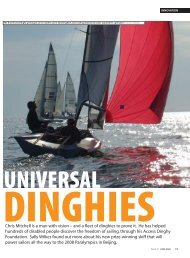
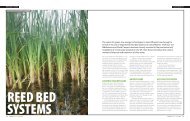
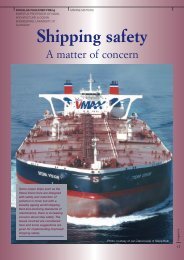
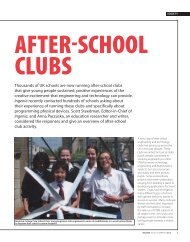
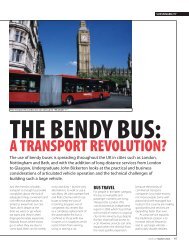
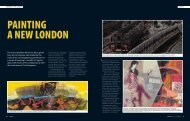
![[322/03] Francke - Ingenia](https://img.yumpu.com/23411337/1/184x260/322-03-francke-ingenia.jpg?quality=85)
